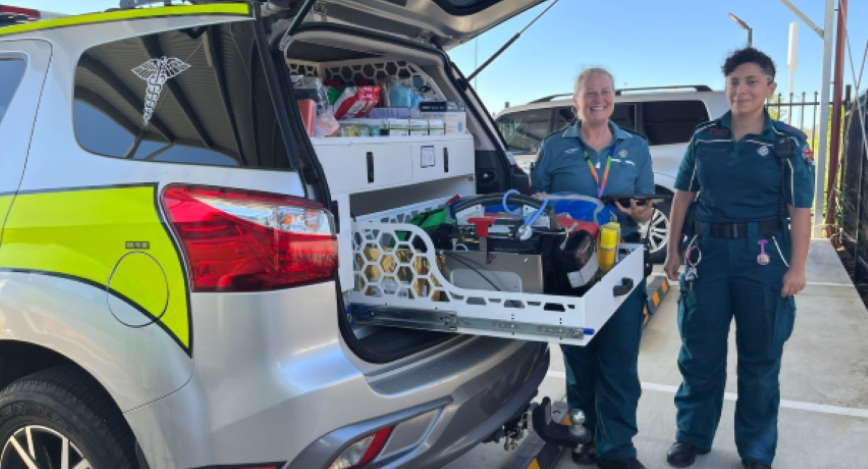
The Fraser Coast community is benefitting from an innovative program which sees a partnering of Wide Bay Hospital and Health Service (WBHHS) mental health clinicians with the Queensland Ambulance Service (QAS) to respond to people experiencing mental health distress.
The Mental Health Co-Responder (MH-CoRe) program offers faster access to care for Hervey Bay and Maryborough locals in mental health crisis. Working in partnership, a senior WBHHS mental health clinician and a QAS senior paramedic attend mental health emergencies, providing assessment and care on the ground where it’s most needed.
MH-CoRe Team Leader Anna Anderson said the MH-CoRe program puts patients and their individual needs at the forefront of care delivery and allows both WBHHS and QAS to tailor services with each emergency call.
“Prior to launching this service, people in significant mental health distress often called an ambulance or went to the emergency department,” Ms Anderson said.
“The emergency department environment, wait times, and processes can potentially escalate their condition and cause further distress.
“This program removes some of those triggers, providing the opportunity for clients to receive specialised mental health care in in their own home.
“This program does not replace the need for existing mental health services, such as the Oasis Crisis Support Space or the acute care team, or for emergency department care; it complements these services and allows for timely and responsive assessment and referral, if needed.”
WBHHS Acting Chief Executive Robyn Scanlan said the MH-CoRe program demonstrates WBHHS’s commitment to provide care, connection, compassion for all.
“As a health service, we strive to put our patients at the centre of all that we do,” Ms Scanlan said.
“We care for those in our community in their hour of need, but we understand a one size fits all approach doesn’t work. Services like MH-CoRe help to ensure we provide the right care, in the right place, at the right time.”
“This service supports people calling 000 for mental health support by providing treatment outside the emergency department, we’re also improving wait times for people who do present at emergency.”
Queensland Ambulance Service, Mental Health Response Program Director Sandra Garner said we know emergency departments aren’t always the best place for patients suffering a mental health crisis.
“That is where the MH-CoRe teams are able to provide the same care and treatment which would occur in an emergency department to people in their own environment,” Ms Garner said.
“This includes providing a comprehensive and individually tailored physical and mental health assessment, removing the need for patients to present to emergency departments.”
Ms Scanlan said the co-responder program has proven successful across pilot sites throughout the state for both consumers and health services.
“In other areas where it has been piloted, more than 70 per cent of people seen by MH-CoRe teams received treatment in their own homes rather than having to present to an emergency department.”
Early indications suggest a similar level of success locally since it launched in February, with the WBHHS MH-CoRe team having supported 32 emergency calls which has resulted in 19 people not needing to be transported to an emergency department and staying in the environment they are most comfortable in.